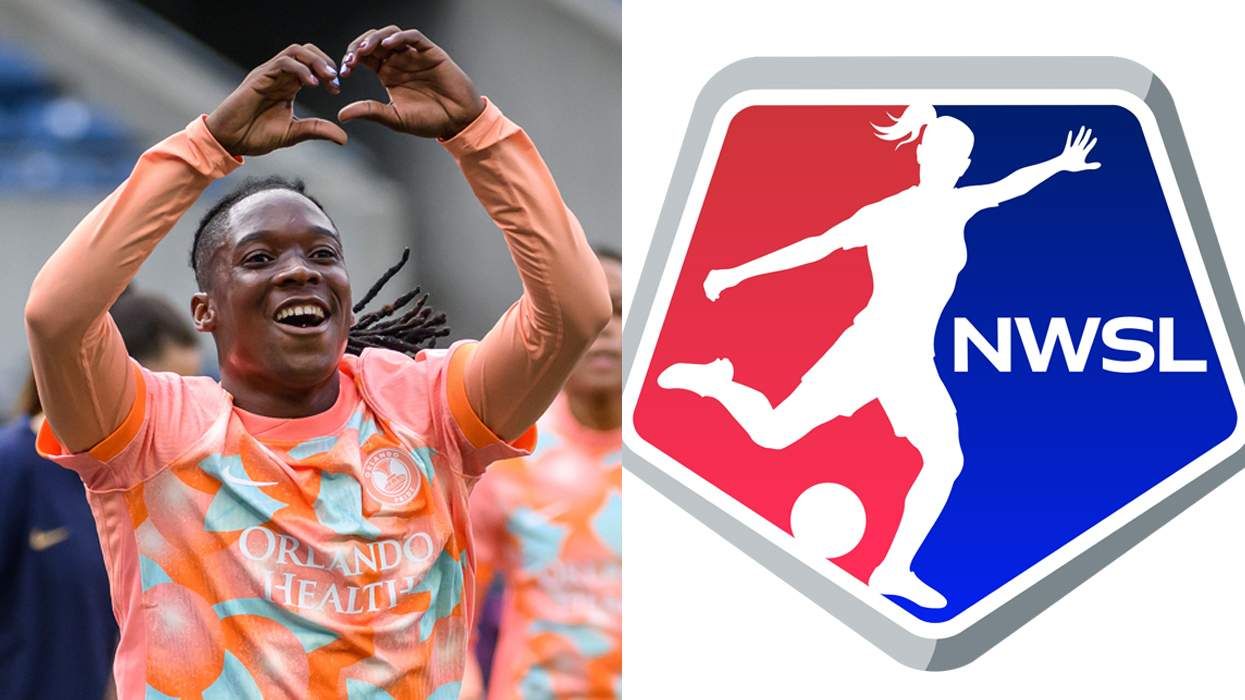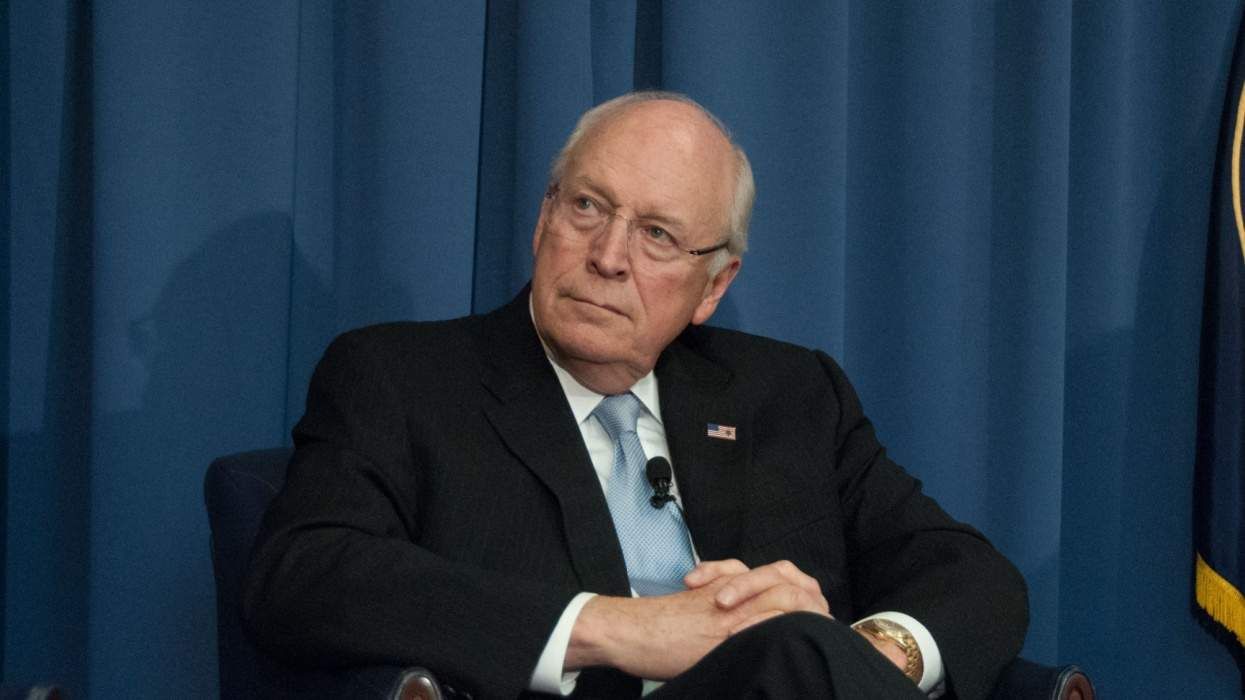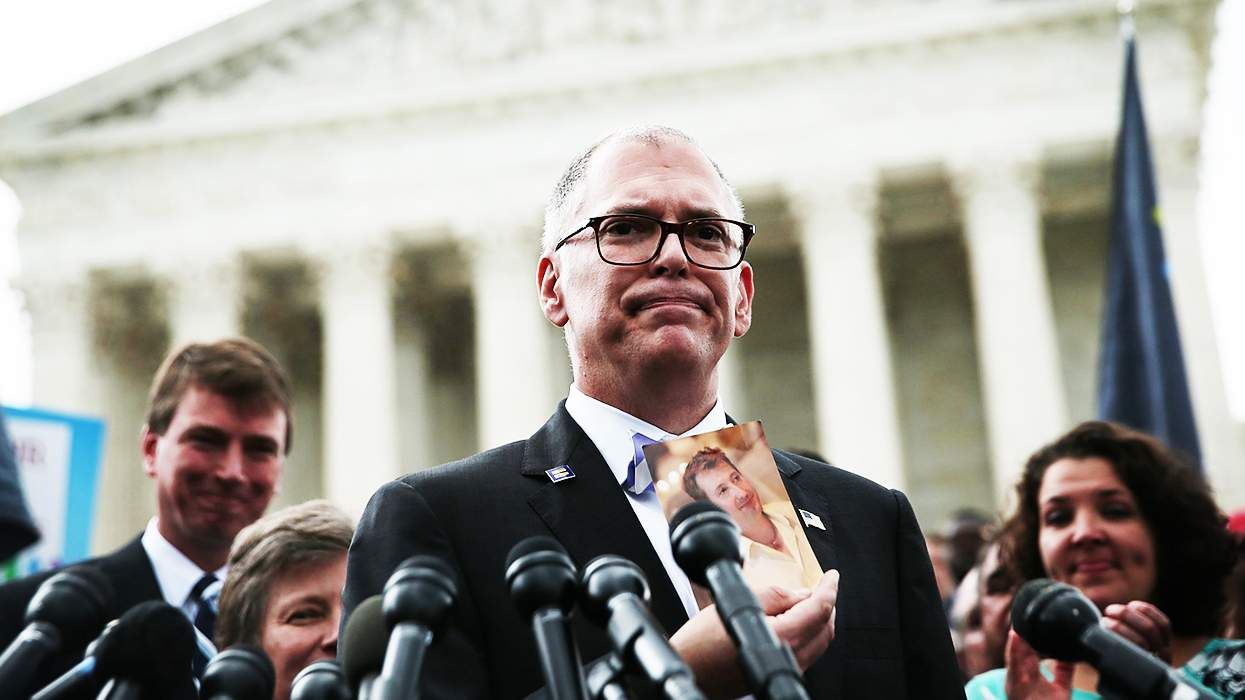Republican Mitt Romney has delighted in his attacks on Hillary Rodham Clinton, questioning the Democratic presidential contender's experience by labeling her an ''intern'' and saying ''she has never run a corner store.'' The Clinton camp is fighting back with a singular rebuttal that harkens back to the GOP's devastating attacks on Democrat John Kerry in 2004. It's also sure to echo into next year should Romney emerge as his party's presidential nominee. ''Hillary Clinton needs no lessons on character from a man who switches his positions on a daily basis,'' said campaign spokesman Howard Wolfson.
All Rights reserved
By continuing to use our site, you agree to our Privacy Policy and Terms of Use.
Your support makes The Advocate's original LGBTQ+ reporting possible. Become a member today to help us continue this work.
Republican Mitt Romney has delighted in his attacks on Hillary Rodham Clinton, questioning the Democratic presidential contender's experience by labeling her an ''intern'' and saying ''she has never run a corner store.''
The Clinton camp is fighting back with a singular rebuttal that harkens back to the GOP's devastating attacks on Democrat John Kerry in 2004. It's also sure to echo into next year should Romney emerge as his party's presidential nominee.
''Hillary Clinton needs no lessons on character from a man who switches his positions on a daily basis,'' said campaign spokesman Howard Wolfson.
Phil Singer, another Clinton spokesman, said after Romney focused on immigration a week ago: ''Considering how often he flip-flops, we wouldn't be surprised if Governor Romney later decides he's for sanctuary cities -- again.''
The singularity of response, delivered regardless of what Romney says, homes in on what proved to be one of Kerry's major vulnerabilities: the perception his positions change with the political winds.
Kerry delivered President Bush a gift amid the 2004 campaign when the Massachusetts senator said of a war-funding bill, ''I actually did vote for the $87 billion before I voted against it.''
In the case of Romney, another Massachusetts politician trying to reach the White House, the flip-flop charge could carry equal potency.
The former governor acknowledges he's switched positions on abortion rights, while he's also taken a no-new-taxes pledge that an aide labeled ''political gimmickry'' during his 2002 gubernatorial campaign.
At the same time, Romney is touting a constitutional amendment to ban same-sex marriage after saying during a 1994 U.S. Senate campaign that he'd be a better advocate of gay rights than his opponent, Democrat Edward M. Kennedy. Romney says he also opposed same-sex marriage in 1994 and is as committed to opposing discrimination based on sexual orientation today as he was 13 years ago.
''No matter how long you've been in public office, the first time you're running nationally, you're being defined in a national context. The Clinton campaign is trying to make sure that Mitt Romney is firmly perceived as a flip-flopper,'' said Erik Smith, a veteran Democratic strategist not working for any candidate this cycle.
Smith said the label is especially troublesome for presidential contenders because the public yearns to see them as something more than political figures.
''A lot of people laughed at George Bush flubbing sentences in 2000, but a lot of people took that to be a sign he was like the rest of us,'' Smith said. ''The more political you can make someone, the less attractive they can be to people weighing a presidential candidate.''
That concern helps explain why Romney, the son of a three-term governor who himself just finished four years in office, has taken to describing himself more as the venture capitalist he once was than the governmental figure he has become.
''I'm not in this race for the next step in my political career. I don't have a political career, to tell you the truth,'' he said in September during a campaign swing through California.
Trying to appear nonpolitical -- and point out those engaging in rhetorical gymnastics -- also explains why Clinton's Democratic rivals have pounced on the New York senator.
During a debate late last month, she offered a Kerryesque answer when asked about New York governor Eliot Spitzer's since-abandoned proposal to issue driver's licenses to illegal immigrants.
''I did not say that it should be done, but I certainly recognize why Governor Spitzer is trying to do it,'' Clinton replied.
Rival Barack Obama said later: ''This may be smart politics by Washington's standards, but it's not what America needs right now.''
Fellow Democrat John Edwards said: ''Since the debate, we've continued to hear spin, smoke and mirrors -- the same kind of double-talk -- to get away from the very serious issues that are in front of us in this campaign.''
Clinton accused her male counterparts of ganging up on her, yet this past week, she executed her own flip-flop to achieve clarity on the issue.
Clinton announced she opposed giving driver's licenses to illegals, but when the debate moderator pressed her rivals for their point of view, it was Obama -- not Clinton -- who offered a convoluted response. (Glen Johnson, AP)
From our Sponsors
Most Popular
Latest Stories
From pansies to pink triangles: A guide to queer symbols through the ages
Zohran Mamdani and Andrew Cuomo’s complete track records on LGBTQ+ issues
NYC mayor candidate Zohran Mamdani makes 1 a.m. surprise campaign stop at gay bar
Trans service members have always been part of U.S. history
New Pentagon memo dictates how transgender troops must look to defend their service
Trending stories
Recommended Stories for You

































































Charlie Kirk DID say stoning gay people was the 'perfect law' — and these other heinous quotes